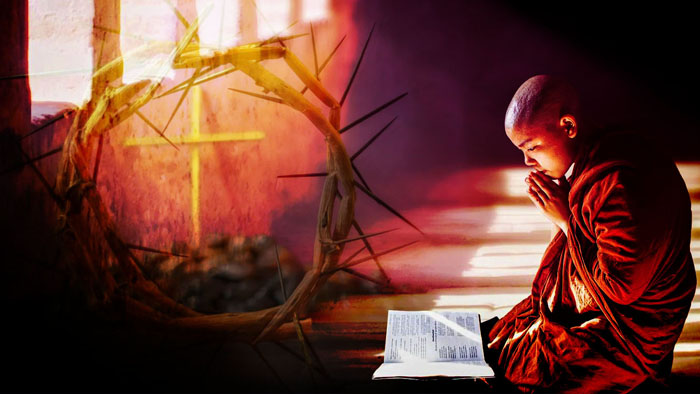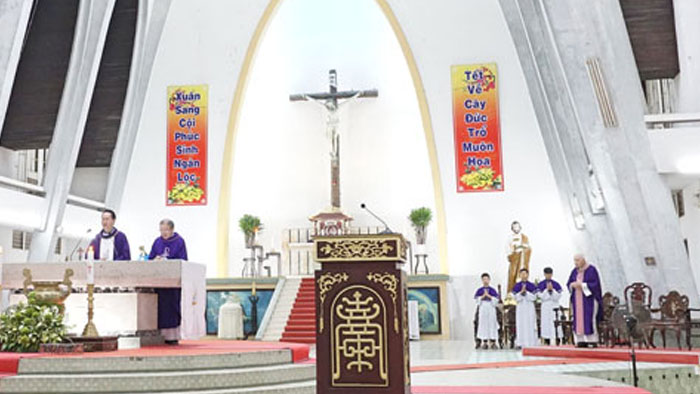Last month I had the chance to celebrate the Lunar New Year in Vietnam with my relatives and friends. The Tết celebrations are very meaningful and joyful for us Vietnamese. I was whole-heartedly enjoying the celebrations with delicious food,givingand receiving the “lì xì” (red envelopes), offering well wishes, and celebrating many masses. This year, the Lunar New year came early. This bring up an interesting point. Whenever the Lunar New Year celebration coincides with Ash Wednesday,the New Year celebrations take precedence over Lent.
Vietnamese Catholics have received permission from the Church to move Ash Wednesday services and its obligations to the following Friday or Saturday. But you have to keep in mind that the Tết celebration and the joyful festive mood surrounding them go on for at least four days. Having our Ash Wednesday on the following Friday or even Saturday breaks up the mood and the liturgical progression of our Lunar New Year.
Tết liturgies begin with Tất Niên—the last day of the year celebration. On the eve of the first day of Tết we give thanksgiving. On the first full day we pray for peace. On the second day we pray for our ancestors, especially grandfathers and parents. Then, on the third and last day of Tết we pray for the sanctification of our labors. You can imagine the disruption that would be caused if we had to abruptly stop the flow of these Tết celebrations and begin our Lenten observance. In the spirit of inculturation, I believe that there needs to be some changes here.
Catholics in Vietnam faithfully observe the rule of fasting and abstinence from meat for at least two days during the Lenten Season—Ash Wednesday and Good Friday. The universal Church recommends that the faithful all around the world abstain from meat and eat fish. For us Vietnamese this seems to be culturally inappropriate. Unlike Europeans, whose Church Fathers set forth the rule of fasting and abstinence, we Vietnamese love to eat fish. It is our favorite food, and we, especially the poor, hardly ever eat meat becauseit is so expensive. Abstinence from meat and eating fish on Ash Wednesday, Good Friday, and other Fridays of the year is not an act of sacrifice and penance for us.
Our Vietnamese Bishops should try to find more fruitful, culturally appropriate ways for Vietnamese Catholics to observe the true spirit of the Lenten Season. The way is clear for them to do so. Canon Law # 1253 states, “The conference of bishops can determine more precisely the observance of fast and abstinence as well as substitute other forms of penance, especially works of charity and exercises of piety, in whole or in part, for abstinence and fast.”
Nevertheless, quite a few Vietnamese Catholics, including many priests and religious, follow to the letter of the law and the traditional way of fasting and abstinence from meat. They would have a big banquet before midnight on Ash Wednesday or Good Friday, and after 24 hours of abstinence and fasting, they would have another big meal. How is this a sacrifice?
I think that we Vietnamese Catholics could learn a lesson about fasting and abstinence from our Buddhist friends. In the spirit of interreligious dialogue with Buddhism, Vietnamese Catholics could limit themselves to eating only rice and vegetables and abstain from all animal products when observing Ash Wednesday, Good Friday, and other Fridays in Lent—and perhaps even throughout the year. In this way Catholics and Buddhists could find in their common practice of abstinence and fasting a meaningful expression of dialogue and solidarity.
Fr Joseph Trong Nguyen, SVD


